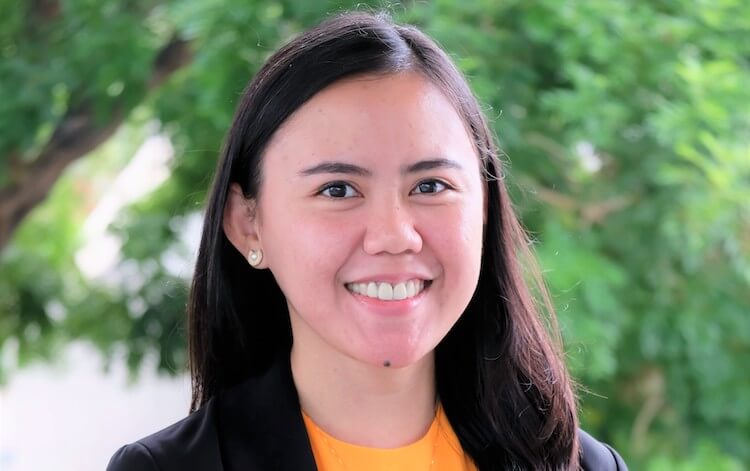NUS Business School is one of the biggest names in the Asian business school landscape. In recent years, it has cemented itself in the top 20 of the Financial Times Global MBA rankings, holding its own against world-renowned European and US schools.
But what is it actually like to study at NUS? BusinessBecause caught up with seven stars of The NUS MBA, where they shared their ambitions, highlights of the program, and how their MBA is teeing up their dream careers.
Kat Volante | MBA Energy Club President & CleanTech Advocate
Kelvin Ling | O&G Manager Turned CleanTech Entrepreneur
Shalini Arulanandam | Singapore Civil Defence Force Chief Medical Officer
Roger Tan | Marketing Professional With A Social Impact Drive
Corinne Ablaza | Aspiring Clean Energy Infrastructure Investor
Shikha Malhotra | Building Digital, Inclusive & Innovative Products
Stanislav Borisov | Building Singapore's Innovative Clean Energy Future
Current students
Kat Volante
Kat is a first year student on The NUS MBA. She has a bachelor’s in electronics and communications engineering, as well as nearly seven years under her belt working at Manila Electric Company (MERALCO).
She’s the president of The NUS MBA Energy Club, recipient of the Graduate Business Forum Student Leadership Award, and finalist of the Kellogg Energy Case Competition.
1. Describe your personal brand.
A dynamic, creative, and well-rounded individual passionately dedicated to making a positive change to the community via her contributions in the energy sector, particularly in renewables and related technologies.
2. Why did you pick NUS?
Experts say that the global economic centre of gravity is shifting towards the East, and so I believe it would be strategic for me to gain more exposure and establish my professional network in this region.
Within Asia, NUS was the best choice for me given its excellent reputation, rigorous curriculum, and stellar alumni network. In addition, it is strategically located in Singapore, the world’s most competitive economy, where several multinational corporations operate and a vibrant, multi-cultural society lives.
3. What has been the stand-out experience of your MBA?
Receiving the prestigious Graduate Business Forum Student Leadership Award (SLA) in recognition of my achievements as first female president of The NUS MBA Energy Club has been one of the key highlights of my MBA journey so far—of my entire life even!
The SLA is conferred to students who have exemplified leadership, innovation, and commitment within the business school community and beyond.
4. Tell me something about The NUS MBA that others might not know.
NUS MBA students are given countless opportunities to enhance their leadership potential (via student council), gain industry exposure (via MBA Consulting Projects, company visits, networking sessions), give back to the community (via charity programs), and immerse themselves in the global business environment (via study trips, case competitions). There is indeed so much more to learn and experience outside the classroom!
5. Who is your personal hero?
My dad has always served as my inspiration and benchmark for success. He has done extensive work on technical and vocational education and training, rural economics, and community development, for different organizations including the World Bank, United Nations Development Programme, and International Labour Organization in developing countries all over the world.
His grassroots approach in making the world a better place is admirable, and I am hoping I could achieve even just a small fraction of what he has accomplished so far.
6. What advice would you give to other MBA aspirants?
Be like a sponge — soak it all in and make the most out of your MBA journey! Step out of your comfort zone, push boundaries, and rediscover yourself every day. You will be surprised by how much you will be transformed by the entire experience.
Kelvin Ling
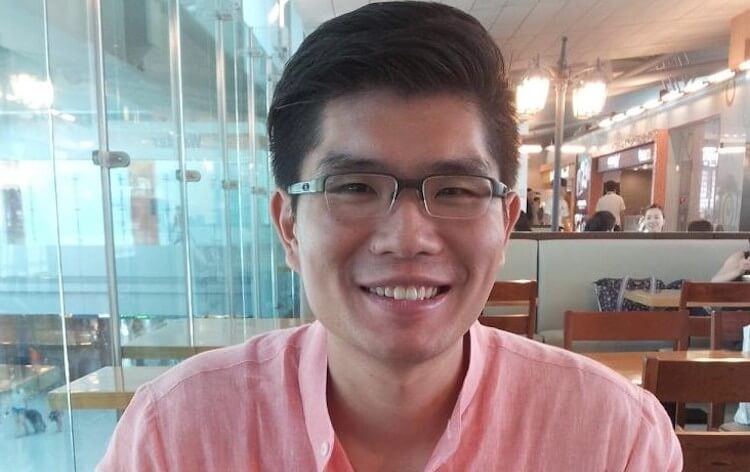
A first year part-time NUS MBA student, Kelvin also holds a bachelor’s in chemistry from NUS. He’s been working in the energy industry for nearly 10 years, currently as a sales manager at Oiltanking Asia Pacific.
At NUS, Kelvin has launched his own cleantech startup as part of the NUS Graduate Research Innovation Program. He was the winner of the inaugural CleanTech Challenge 2020, Singapore Chapter, and represented NUS in the finals of CleanTech Finals Challenge 2020 in the UK (held virtually).
1. Describe your personal brand.
I believe humility together with determination are two important attributes that one must have in order to succeed. I developed these attributes early on in my life, when I worked multiple jobs since the age of 13 to provide for my family, whilst trying to complete my basic education.
I’m also an avid runner, having competed in marathons and ultramarathons.
2. Why did you pick NUS?
I did my undergraduate Chemistry degree at the NUS Faculty of Science. Other than the rigorous academic learning, I had many good memories of my time in the hostel (King Edward VII hall), going for a student exchange program in Canada and leading the NUS Cross Country team.
When I decided to pursue my part-time MBA, it was quite natural for me to choose NUS. More importantly, NUS Business School has a good global reputation with an emphasis on experiential learning and businesses in Asia, as well as having a wide diversity of nationalities and a vast alumni network.
3. Tell me something about The NUS MBA that others might not know.
People may perceive that The NUS MBA is very competitive and with a cut-throat environment. There is certainly a healthy level of competition as NUS MBA students are expected to challenge themselves and their peers in order to bring out the best in each other. The common phrase we use is “High Challenge, High Support”.
However, The NUS MBA definitely does not have a cut-throat environment. In fact, it provides a safe environment where our beliefs are challenged without judgement, and in the process, we learn, improve and grow.
4. Who is your personal hero?
My father-in-law. He started his career almost penniless, but worked his way up and is now a respected leader in his industry. Despite that, he remains very humble and gives back substantially to society.
He was also the person who guided me back to complete my polytechnic education, when I was about to quit in order to work and repay my family’s mounting debts and medical bills. If it weren’t for him, I would not have the education and opportunity to be where I am today.
5. What are your next steps?
In my current role in Oiltanking, I hope to gain more experience in assets and operations before taking on a more strategic, general management role. I would like to help the company embark on a journey towards a more sustainable business, without neglecting stakeholders’ priorities.
Through the guidance of the NUS Graduate Research Innovation Programme (GRIP), I’m also taking small steps in fulfilling my entrepreneurship dream. Earlier this year, my co-founder and I started a cleantech company specialising in treating oily wastewater before it contaminates drinking water and potentially destroying the marine ecosystem. We are now striving to create our first commercial membrane product for a pilot project with an engineering firm that specialises in treating commercial wastewater.
6. What advice would you give to other MBA aspirants?
You can’t choose your starting point but you can definitely decide your journey and ending point. Taking myself for example, throughout my life, people have often told me that I would never do well in my studies or I would never be able to run competitively. Rather than feeling beaten up, I turned these negative comments into sources of motivation.
Lastly, don’t procrastinate! If you have a goal to achieve, start working on it today and stay focused even when the going gets tough.
Shalini Arulanandam
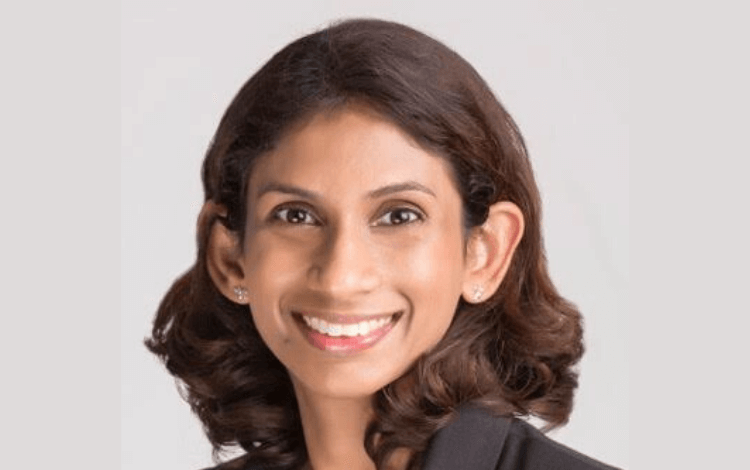
Shalini was the first woman to receive a Singapore Armed Forces (SAF) scholarship to study medicine. After graduating from NUS Medical School, she joined the Singapore Navy as a medical officer.
In 2018, she was appointed as the Chief Medical Officer for the Singapore Civil Defence Force, where she has been working alongside her part-time MBA at NUS.
1. Describe your personal brand.
When you move on from this current job, all you leave behind is your reputation, and all you take with you are your friendships.
As such, give your best in everything you do, and always work with your people in mind.
2. Why did you pick NUS?
NUS has always been a huge part of my life: it was where I did my undergraduate studies, met my husband, and studied for all my post-grad exams. So, it holds a sense of home for me and I am confident of its reputation as a University.
Also, I was interested in the MBA specialisation in healthcare management, which was unique among the other local programs I looked at.
3. What has been the stand-out experience of your MBA?
The COVID outbreak fell smack in the middle of my second year. What I was impressed with was how NUS and my lecturers rapidly adapted to the changing regulations every week, gradually stepping down the size of the class and then going fully online.
I didn’t think it would be possible, but we part-timers with full time jobs actually managed to navigate the various online platforms and deliver group presentations and projects without any face-to-face contact, even as some of us were going through unprecedented challenges at work.
4. Tell me something about The NUS MBA that others might not know.
The class is curated to have a good mix of nationalities, talents, and backgrounds, and as a doctor with no useful knowledge in business, finance, economics, for example, I was saved by my classmates’ deep expertise in these subjects many times.
Doing group work with almost-strangers also forces you out of your comfort zone, and makes you more ready to engage with others outside your tribe in your daily life as well.
5. What advice would you give to other MBA aspirants?
I would advise anyone thinking about furthering their studies to just go for it. There is something about learning something totally new that gives you renewed energy and makes you feel younger, in a way.
Roger Tan
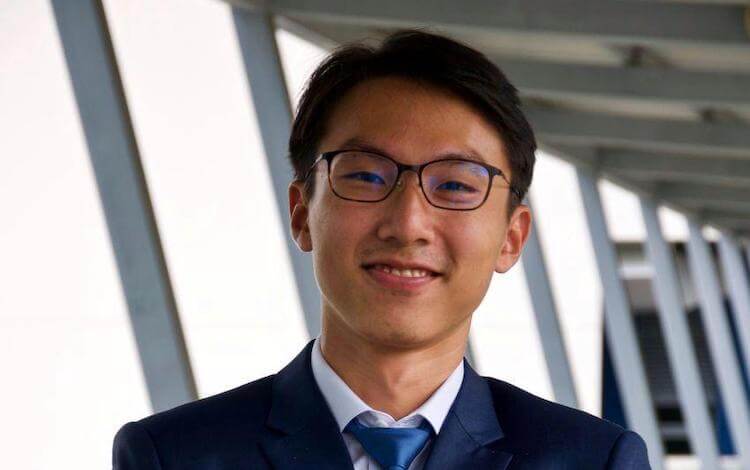
Marketing professional Roger joined NUS after nearly four years working at Kadence International in Singapore.
During his MBA, he was vice president of The NUS MBA Student Council, as well as facilitating and moderating the Social Innovation Challenge run by the Sustainability, Ethics & Impact Club.
1. Describe your personal brand.
Reliable, trustworthy and always keen to help others
2. Why did you pick NUS?
The NUS MBA is right in the heart of a highly dynamic business landscape. Singapore is often the regional hub for many multinational companies, and there are plenty of opportunities to immerse yourself in this dynamic business landscape. The NUS MBA curriculum also provides the opportunity to learn more about businesses in the region.
It's also a world-class program, and is unique in its own way. The 17-month program fits the sweet spot in timeframe for myself, and offers me the flexibility to craft the experience according to my interests with global exposure, internships and the ability to specialise in my interest areas.
3. What has been the most stand-out experience of your MBA?
I value the simpler times where I would bump into my fellow course mates on campus, and the spontaneous and interesting conversations we would have. That is an experience that I believe no amount of video calls can come close to replicating.
4. Tell me something about The NUS MBA that others might not know.
The NUS MBA is part of the larger NUS organisation, and one can find all sorts of opportunities to collaborate across faculties and programs. The onus is on you to make the most of this chance!
5. Who is your personal hero?
In my professional career, I am fortunate enough to have crossed paths with various business leaders, peers and other colleagues whom I have had the chance to learn from. Each interaction, and every challenge is an opportunity for me to improve myself. Having said that, I have my parents to thank for shaping the mindset that I have right now.
Amongst the life advice that I have picked up over the years, one valuable one that is at the top of my mind is to always put myself in others' shoes, and try to see things from their perspective. It is also thanks to my parents' unwavering support in my endeavours that I am where I am today.
6. What are your next steps?
I have always held the belief that businesses can create much social value while being commercially viable at the same time. Not only do I aspire to lead such a business that creates value for the community, I also hope to tap on my experience to inspire a new batch to achieve greater heights, and improve the lives of many more.
Recent graduates from the NUS MBA
Corinne Ablaza
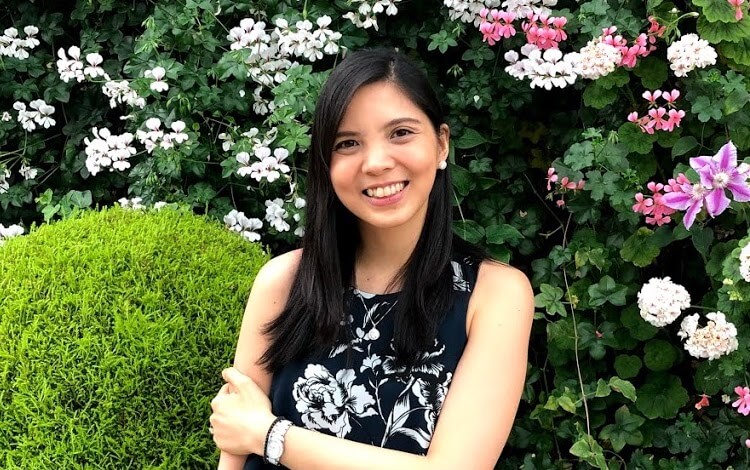
With a business economics bachelor’s degree, Corinne has carved out a career in energy, after over five years of working at the Energy Development Corporation (EDC) in the Philippines. Using her background in clean energy, she has transitioned into working in the banking & finance sector in Singapore for infrastructure investments after completing her MBA.
At NUS, Corinne was the vice president of The NUS MBA Student Council. She was also the recipient of The NUS MBA Achievers Award. During her time, she co-founded The NUS MBA Sandbox Speaker series.
1. Describe your personal brand.
I am passionate about building a more sustainable future, and I know energy and infrastructure is the one area where I really want to contribute. I’d also like to think I’m a bit of a health junkie who wakes up too early in the morning, reads about nutrition for fun, and probably owns more sportswear than ‘normal’ clothes.
2. Why did you pick NUS?
First, I wanted to be able to immerse myself in the countless opportunities and rich cultural experiences that Singapore has to offer.
Secondly, the school’s flexible program structure allowed me to explore new career options. I had the opportunity to work with a non-profit organization through a short-term consulting project. The program format also allowed me to take up a full time internship during the semester.
3. What has been the stand-out experience of your MBA?
I was assistant faculty for Launch Your Transformation, a one-week intensive bootcamp on management communications and leadership skills for all incoming NUS MBA students.
It was challenging because this is not a normal course that you can just ‘teach’ to students. We wanted the students to do things that they haven’t tried before, see things from a different perspective, and push them out of their comfort zones – but all in a safe and supportive environment.
This experience made me realize that it is not an easy task to teach, mentor, and inspire students. I felt fatigued and I was pushed beyond my own limits all throughout the bootcamp, even more than any other class or case competition throughout my MBA. But it was all worth it. This experience made me understand why people teach, because it is truly fulfilling to see your students excel and become better versions of themselves.
4. What are your next steps?
After spending five years in the energy sector, I plan to spend at least another five years gaining as much experience as I can in the finance sector. Ultimately, the goal is to lead my own clean energy infrastructure investments and one day start my own business venture to support sustainability particularly for developing markets such as my home country, the Philippines.
5. What advice would you give to other MBA aspirants?
Don’t let other people tell you what you can or cannot do. I almost gave up taking my GMAT after some people told me that it might be too hard to get your ‘target’ score. I almost did not find myself landing a job in Singapore after some people said it’s ‘too competitive’ here. And I almost didn’t think I could switch careers from energy into finance after some people told me that I was ‘aiming too high’.
I heard them, but I listened to myself more because I know I was just letting myself down if I didn’t even try. You’d be surprised at what you can achieve if you listen to yourself more and just give it your all.
Shikha Malhotra
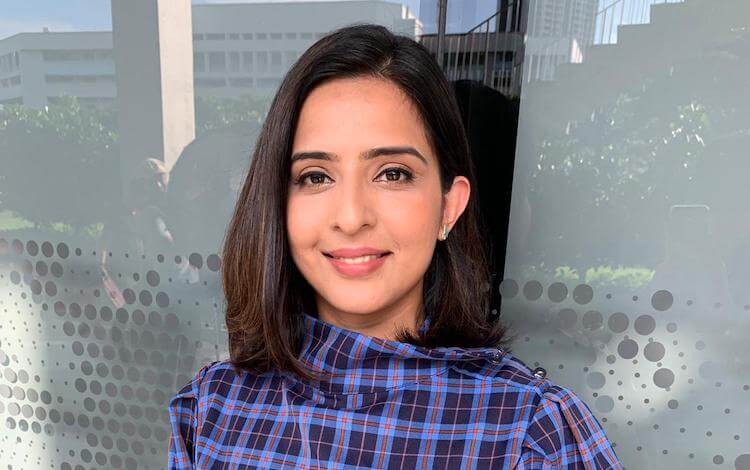
Shikha joined NUS after several years working in marketing and communications, following her bachelor’s in electronics and communications.
At NUS, Shikha’s the outgoing president of the NUS Women In Business Club, launching the inaugural NUS MBA Leadership Conclave bringing together leaders from world-renowned businesses. She was also named as one of McKinsey’s Next Generation Women Leaders in 2020.
1. Describe your personal brand.
A full-time creative thinker, a part-time fitness and sustainability enthusiast and a lifelong proponent of chasing dreams.
2. Why did you pick NUS?
NUS Business School was at the intersection of my interest in the Asian business environment and my desire to share the room with people from different geographies, mindsets, and schools of thought. Having spoken to many alumni and hearing their stories from the classroom to the boardroom, I learned that at NUS, I’d be able to carve out a galaxy of my own with the plethora of opportunities around me, both personal and professional.
3. What has been the stand-out experience of your MBA?
The MBA Olympics brings together sporting teams from all major schools in Singapore for one day of adrenaline-pumping moments. At NUS, we take the Olympics very seriously having been winners for three years in a row.
As a member of the core team, I saw my peers struggle with pain on some days, yet they never backed down, so when you lift the trophy together, the feeling is extraordinary.
4. Who is your personal hero?
Someone who has inspired me beyond imagination with her fearlessness and perseverance in the ongoing battle against Covid-19 is my aunt, Ms. Vandana Verma. She works as a Senior Dietitian at one of the busiest hospitals in New Delhi, India.
Although I have seen her fight the toughest of circumstances ever since I was a kid, I have been at a loss of words looking at her commitment to her patients, her team, and her family these past few months.
5. What are your next steps?
With the unprecedented crisis that we are facing right now, so much has changed about where we wanted to be and what we wanted to do. I am glad that I channelled my MBA program toward learning and preparing for digital innovation and enterprise transformation, and that is something I’d like to focus on, at least for the next few years.
6. What advice would you give to other MBA aspirants?
The pandemic has had a sweeping impact on economies and people. As an aspirant, you should be prepared for the new world. Your skills will definitely help you, but as a future leader, it’s crucial that you value empathy and optimism and build a strong character as you navigate unchartered territories.
Stanislav Borisov
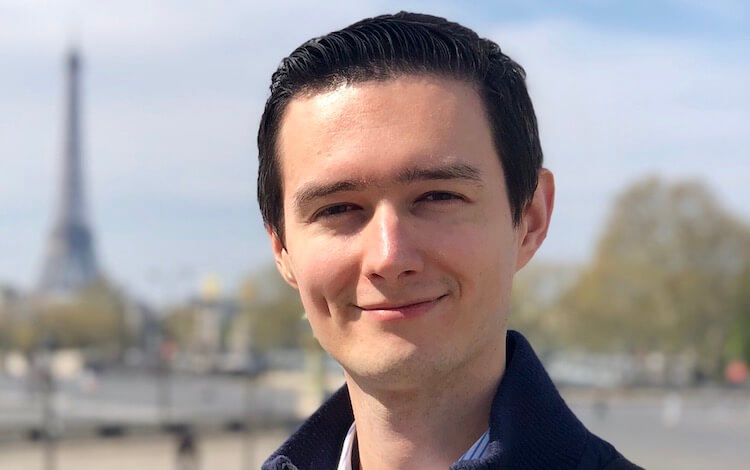
Russian-born Stanislav joined the MBA at NUS having done a master’s degree in engineering degree some years before. He’s held leadership and project management roles on various energy projects across Russia including a stint in France. At NUS, he was the president of The NUS MBA Student Council in 2018-19. He represented NUS at the Graduate Business Conference in 2019 held in Paris.
He’s currently working at the EcoLabs Centre of Innovation for Energy in Singapore, part of a team helping the country transition to an innovative cleantech renewable energy system.
1. Describe your personal brand.
In one sentence it would be “2m tall energetic leader from Siberia”.
When I meet someone for the first time, the first question I always get is “how tall are you?” For a nice ice-breaker, I share a personal name card with the answer to this question with “2m Stas” on one side and “Nice to meet you” on the other.
2. Why did you pick NUS?
My first consideration was about the region where it would make a strategic sense to do an MBA: the US, Europe, or Asia. After some research, it was quite clear that for the next few decades the most promising place for business and new developments will be Asia.
When I started looking into The NUS MBA and discovered its flexibility, strong experiential learning aspect and existence of industry-related clubs, such as the Energy Club, the choice was quite obvious.
3. What has been the stand-out experience of your MBA?
The most memorable one is the first few weeks of the program during which all students were immersed in a series of high-intensity activities such as outdoor team challenges including rock climbing, dragon-boating, and an archery contest, followed by the Launch Your Transformation bootcamp during which we were put in different situations such negotiation, discussion, brainstorming, and conflict resolution, ) and had to leverage and improve our communication skills.
Through this experience, I gained insights about my communication strengths and weaknesses, as well as got to know my classmates and created strong bonds with them.
4. Who is your personal hero?
The leader whom I admire the most is Lee Kuan Yew, the first Prime Minister of Singapore. He was remarkable in many aspects—leadership, public speaking, vision, politics, economics—that helped make such a successful country as Singapore possible. The system that he had built works marvelously till this day.
5. What are your next steps?
I would like to contribute to speeding up the transformation of the energy industry through the adoption of new sustainable energy sources, decentralization, digitalization and expansion into other areas such as e-mobility and smart cities. Currently, I am working on building an innovation-driven cleantech energy ecosystem in Singapore, and my aspiration is to make it the most vibrant and advanced in the region, and then in the world.
6. What advice would you give to other MBA aspirants?
You will be exposed to new people, cultures, ideas, industries, situations and responsibilities so it is critical to keep an open mind to get the maximum value out of the experience. On The NUS MBA, you are often encouraged to prepare yourself for a highly transformative journey, which often requires you to get out of your comfort zone.





